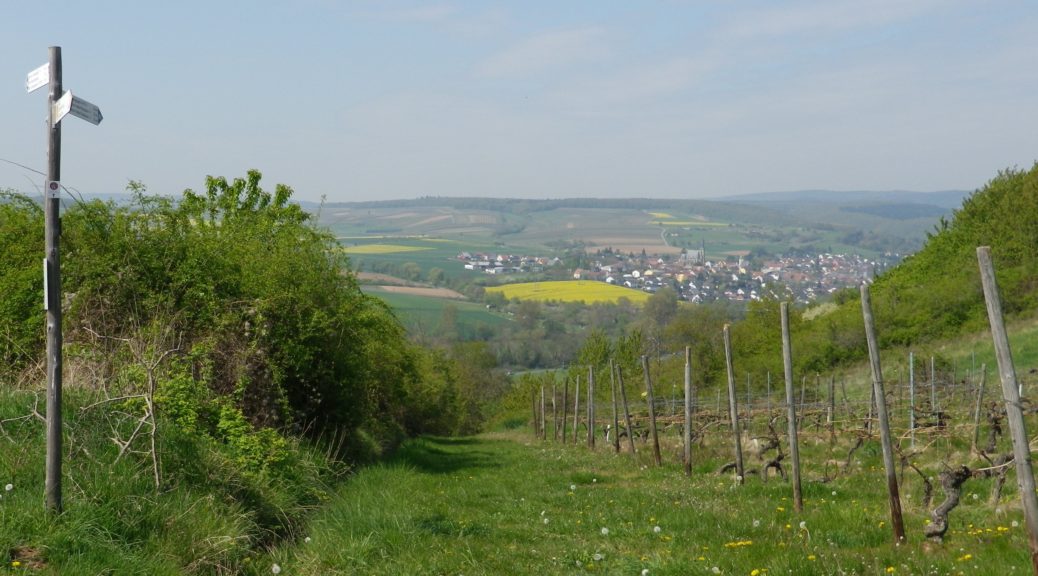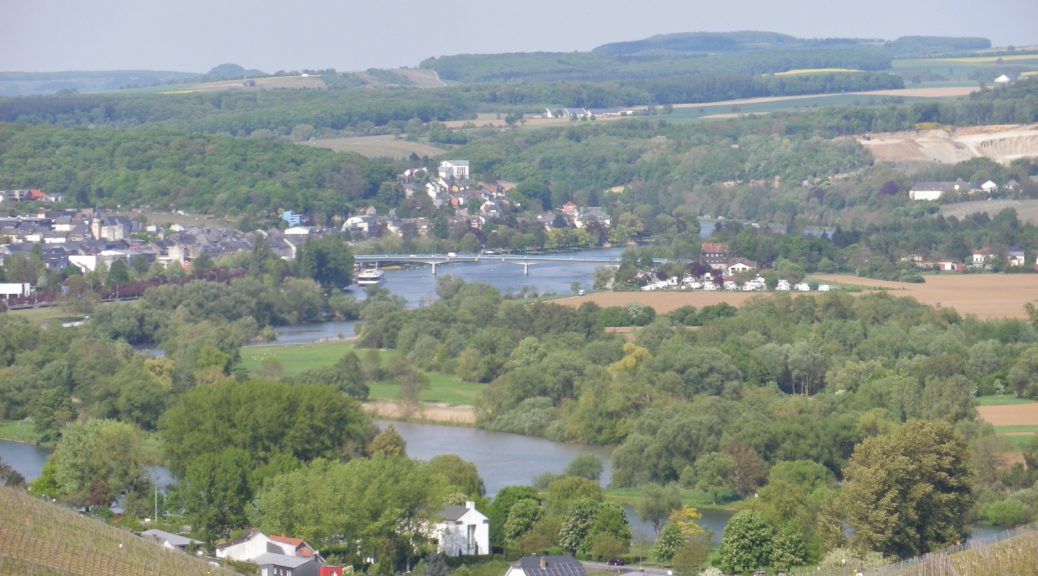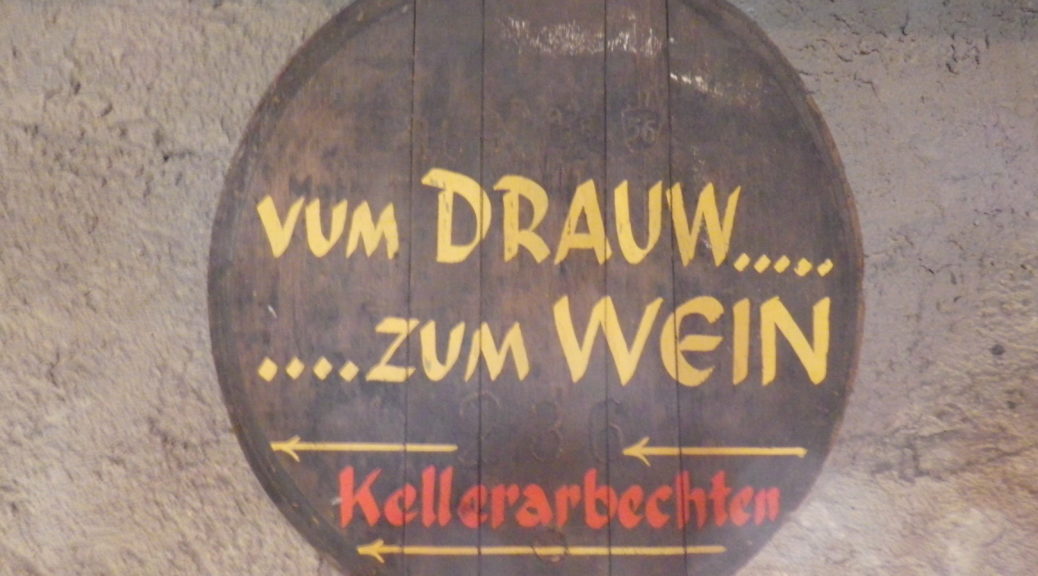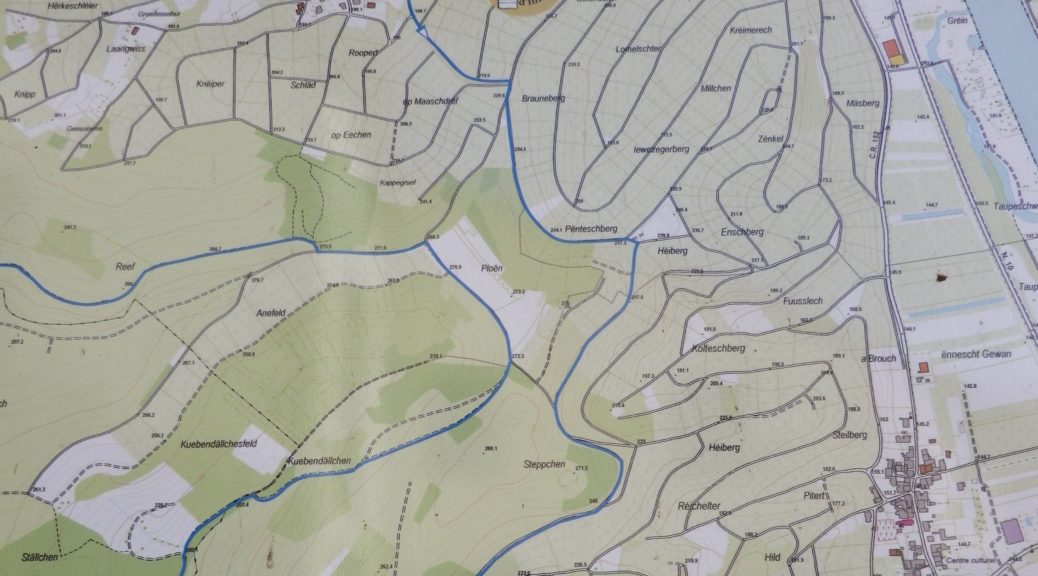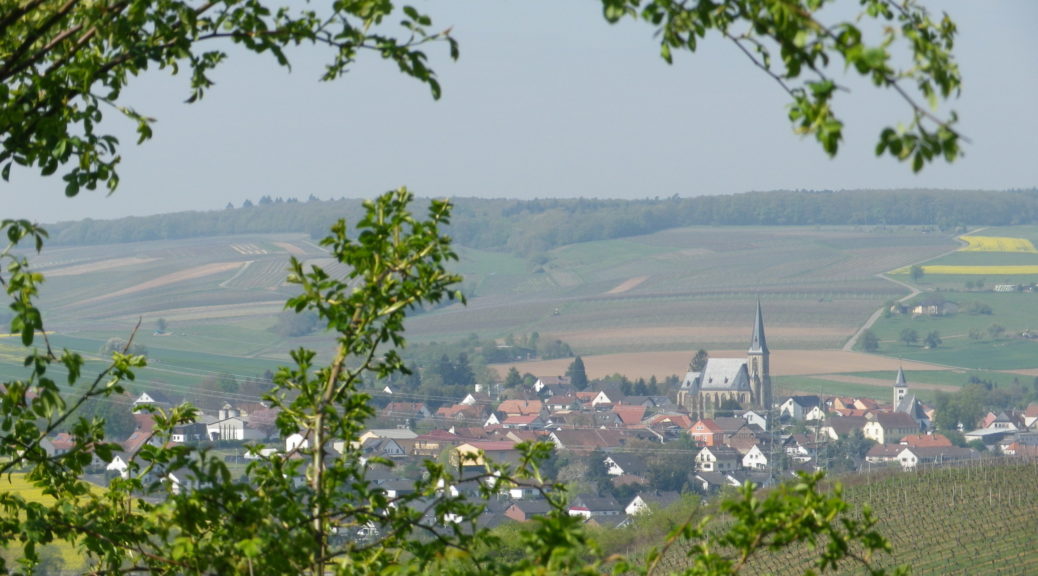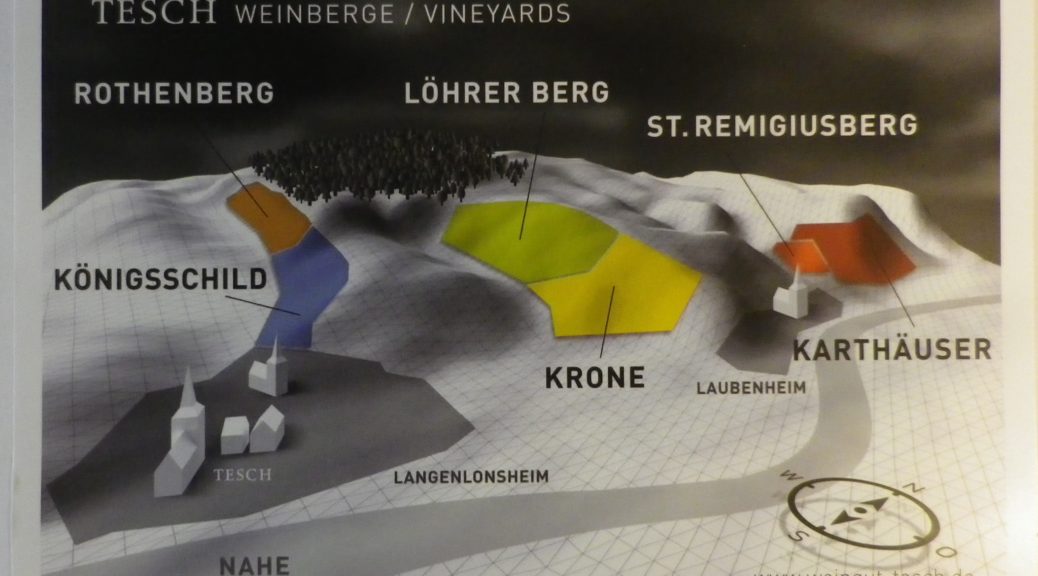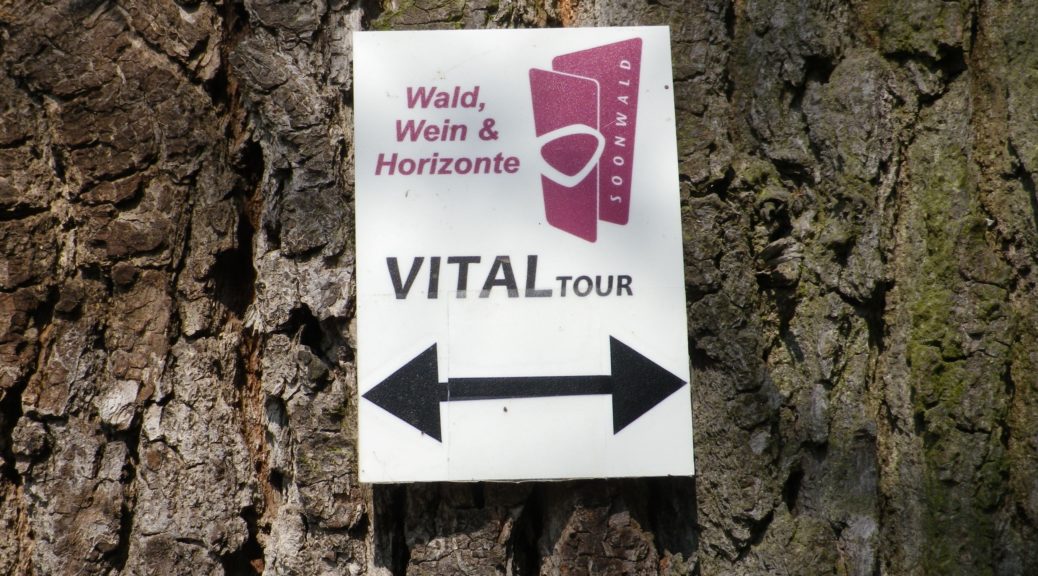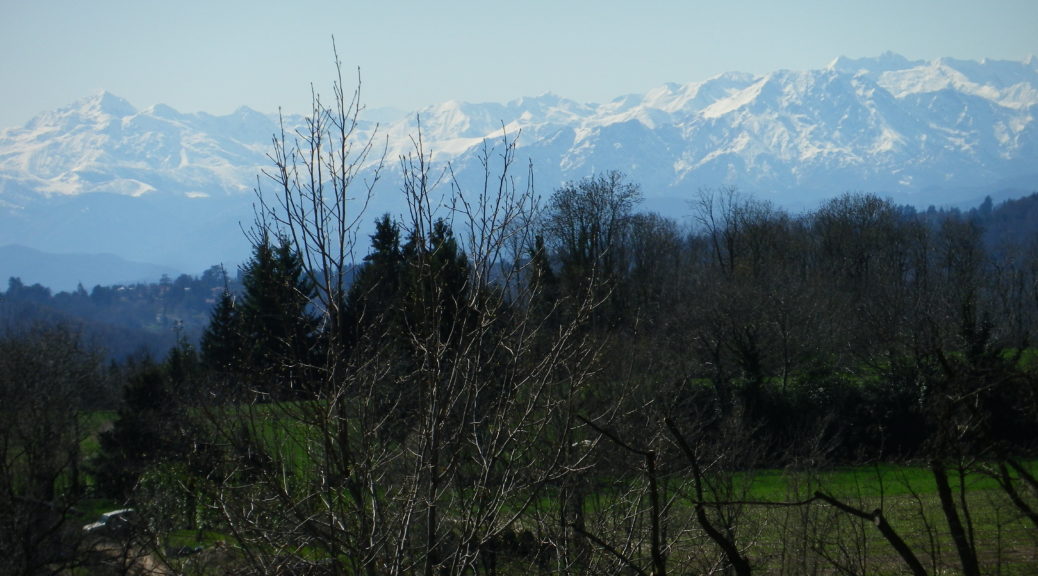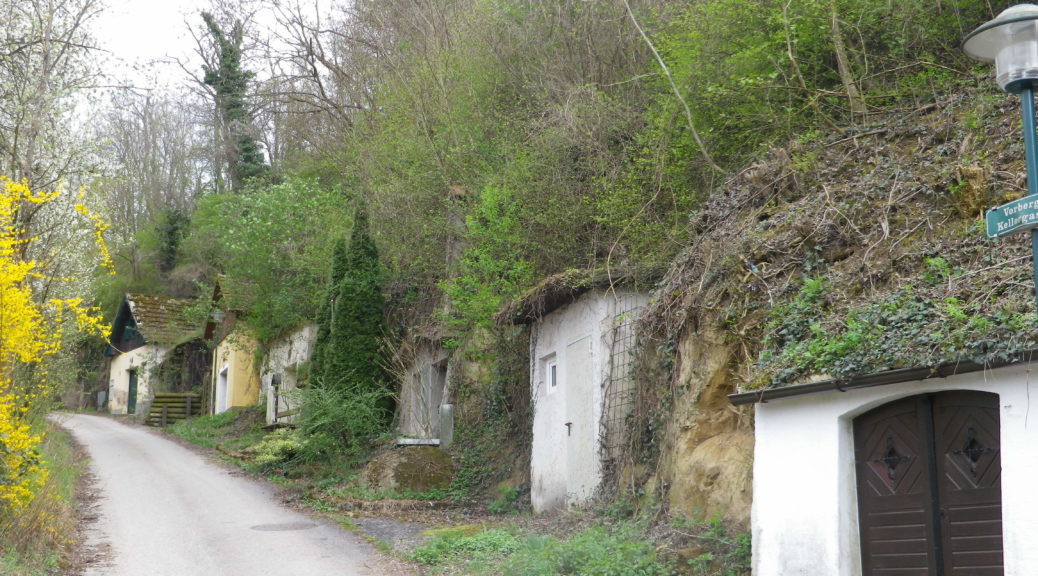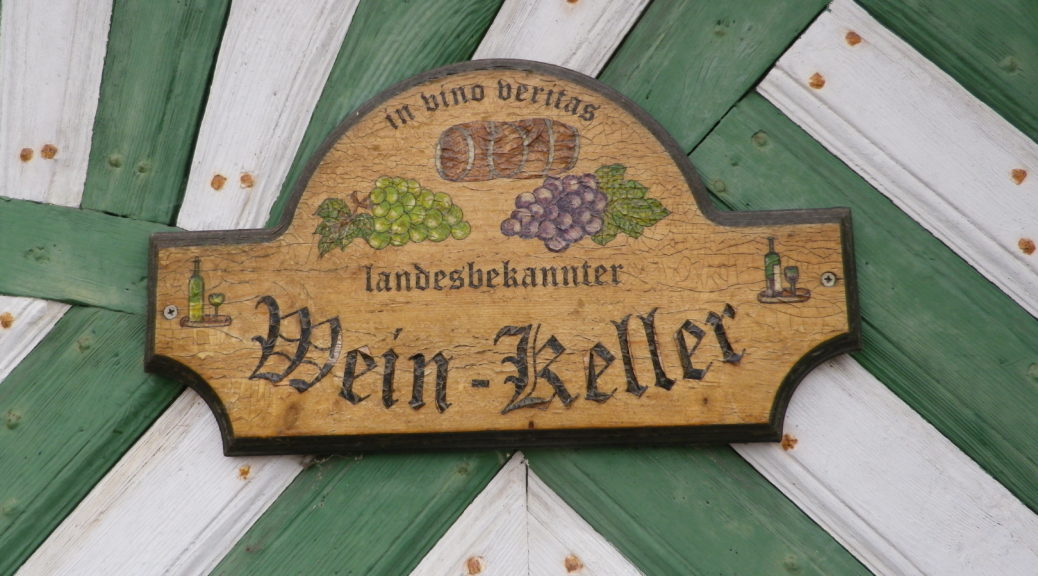Luxembourg’s Moselle Vineyards
Luxembourg is a small country. But good things often come in small packages, as the expression goes. This is true not only of the Duchy, but also of the wines, and of the wine trail I completed.
Luxembourg’s wines, especially its sparkling wines, are appreciating in quality year over year. One of the oldest caves for the Domaines Vinsmoselle, is in Wellenstein in the Canton of Remich. In this southern-most section of Luxembourg’s appellation, wine is big business. Accordingly, three small communities closest to this cave have collaborated to create an educational wine trail. While not in the largest appellation along the Moselle, nor perhaps the most celebrated, this trail deserves pride of place among many of the hiking trails, large or small, found up and down the Moselle for a number of reasons.
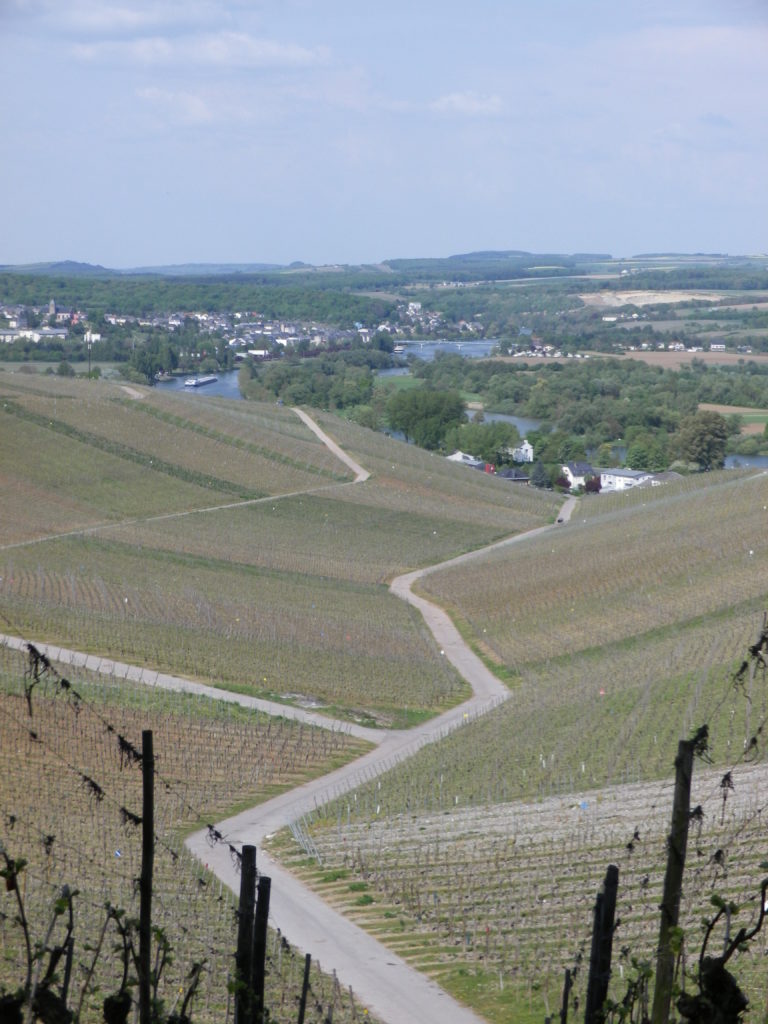
Wine Notes: Luxembourg’s Canton Remich
What I Learned
Luxembourg, a small nation, has a long official name: The Grand Duchy of Luxembourg. With its eastern border set along the Moselle River, Luxembourg, like its riparian neighbors in the tri-border area, France and Germany, is also known for its wines.
Circuit Viticulturel: Trail in a Nutshell
Trail Name: Circuit Viticulturel or Wain a Kulturpad
Trail Type: A short distance; almost exclusively paved, (except about a kilometer, if using a grassy shoulder along a road), well maintained, but not a lot of trail signage.
Length: Total: 10 kilometers/ 6 miles
Convenient to: Remich or Schengen, Luxembourg
Trail Marking: See photo below
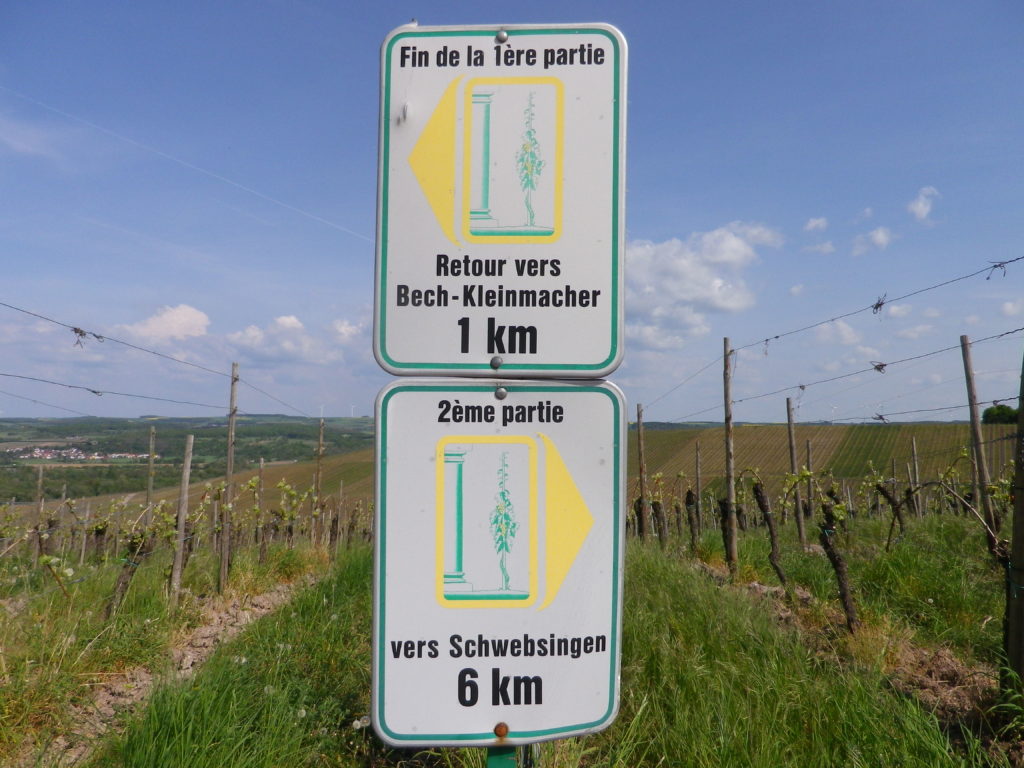
Near and Far Along the Nahe
Nearby were the vineyards, while far off in the distance lay the Rhine and its famous vineyards. In between were peaceful, expansive sections of woods. These were my first impressions. What these all had in common was the Wald, Wein und Horizonte (Woods, Wine and Horizons) hiking trail, a 17.5 kilometer-long trail circling some of the well-known vineyard areas of the Nahe River Valley.
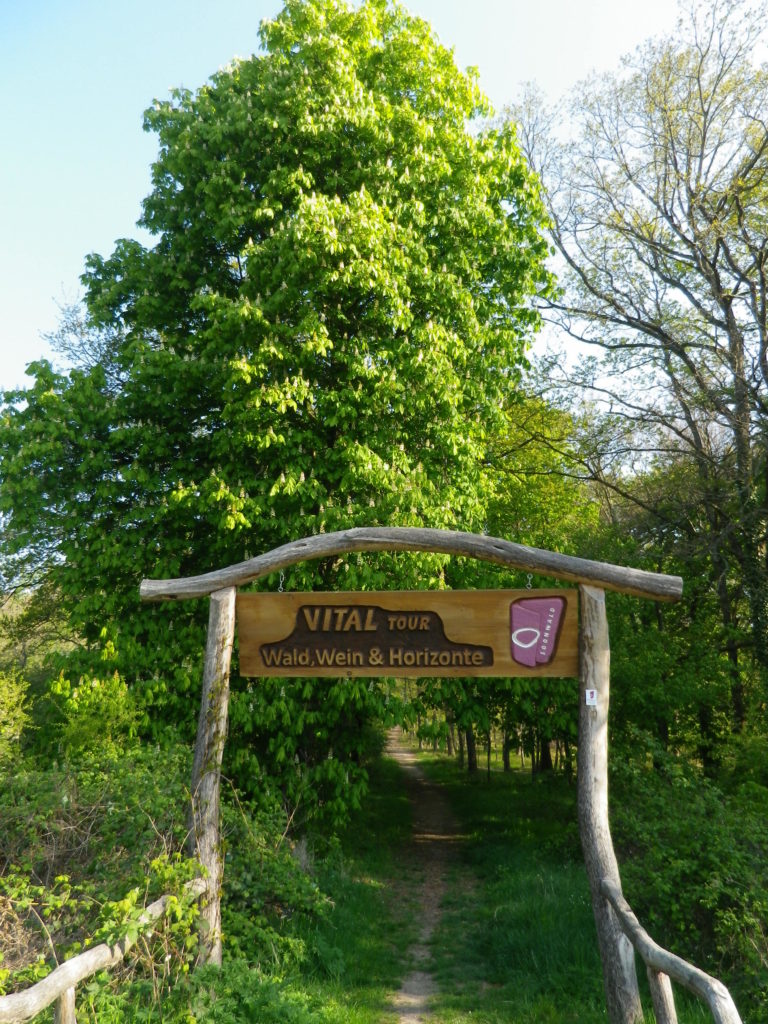
Wine Notes: Nahe
What I Learned
The area around the Nahe River, a tributary to the Rhine, is one of Germany’s 13 wine regions. It roughly begins at Bad Sobernheim, and ends at Bingen on the Rhine, just where the Mittel Rhein starts to narrow dramatically. Along the relatively short length of the Nahe River, there is a great deal of variety in the soil composition. In addition to the slate and red sandstone, not uncommon in this western part of Germany, there is porphyry, quartz and melaphyr (a type of basalt).
Wald, Wein und Horizonte: Trail in a Nutshell
Trail Name: Vital Tour – Wald, Wein und Horizonte (Woods, Wine and Horizons)
Trail Type: Mid-distance circuit; almost exclusively paved or hard-packed surfaces (only a couple of grassy slopes otherwise), well maintained, and extremely well-marked!
Length: Total: 17.5 kilometers/ 10.9 miles
Convenient to: Bingen or Bad Kreuzmnach
Marking: A pair of rectangles in red, with black and red lettering for the trail name, on a white background.
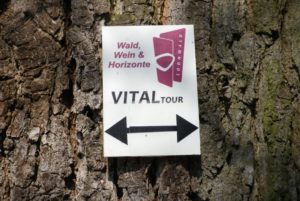
Continue reading Wald, Wein und Horizonte: Trail in a Nutshell
Gallery April 2017
No Corkscrew, No Wine!
The Traisental is the newest and smallest Austrian DAC region, and one I had never heard of. I decided therefore to visit the region’s trails and wineries. I quickly identified a great trail, the Korkenzieher. Korkenzieher is “corkscrew” in German, and the name of this trail derives from a monumental corkscrew rising above the vineyards, with a viewing platform overlooking much of the Traisental vineyard area. Perfect for a wine-themed hiking trail through this region!
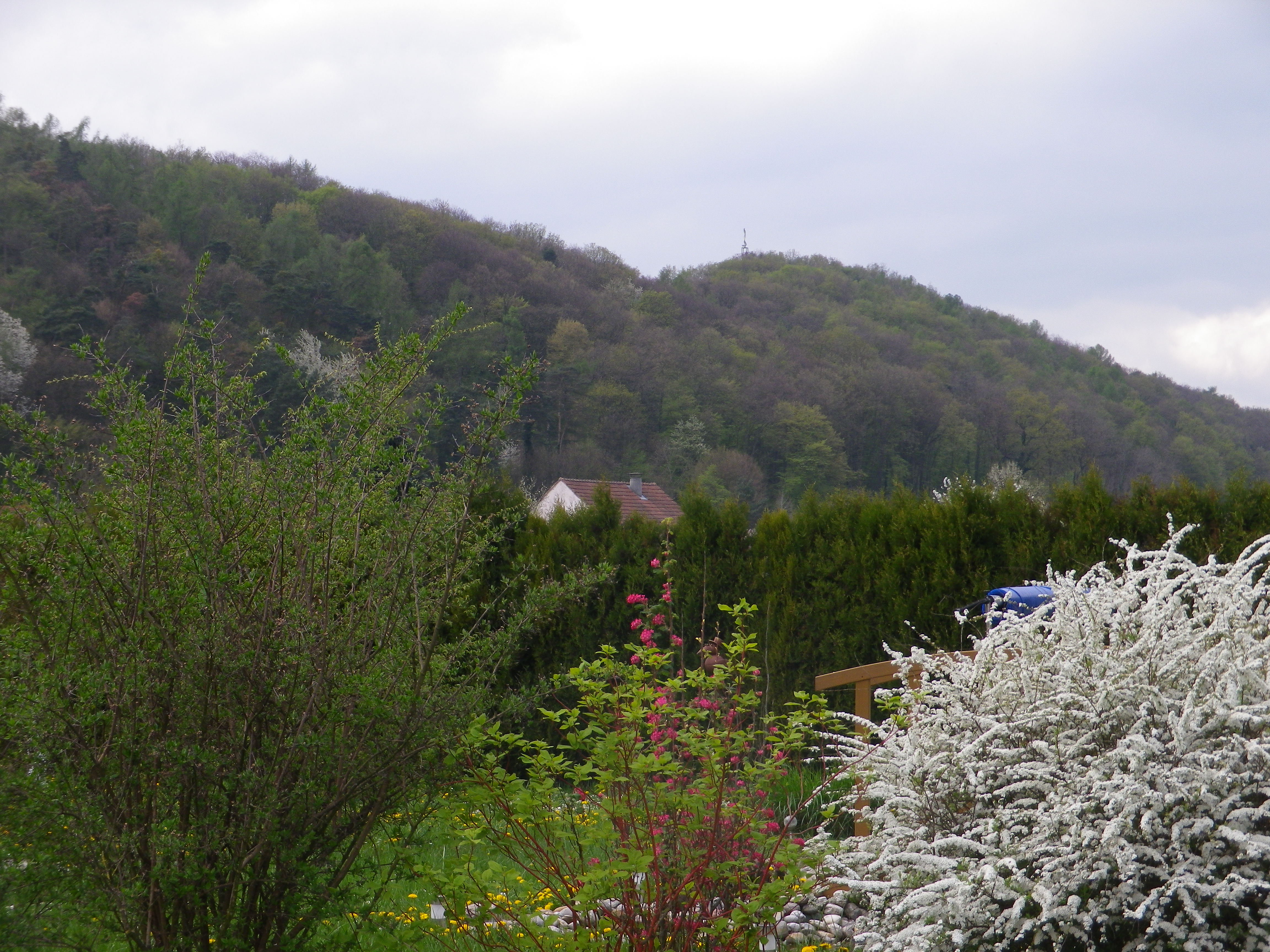
Wine Notes: Austria’s Traisental
What I Learned
The Traisental DAC (Districtus Austriae Controllatus) is in Lower Austria (Niederoesterreich), south of the Danube river and its Wachau and Kremstal wine regions. Vineyards are on either side of the Traisen river valley. It boasts three claims to fame: the smallest, the oldest, and the newest!
